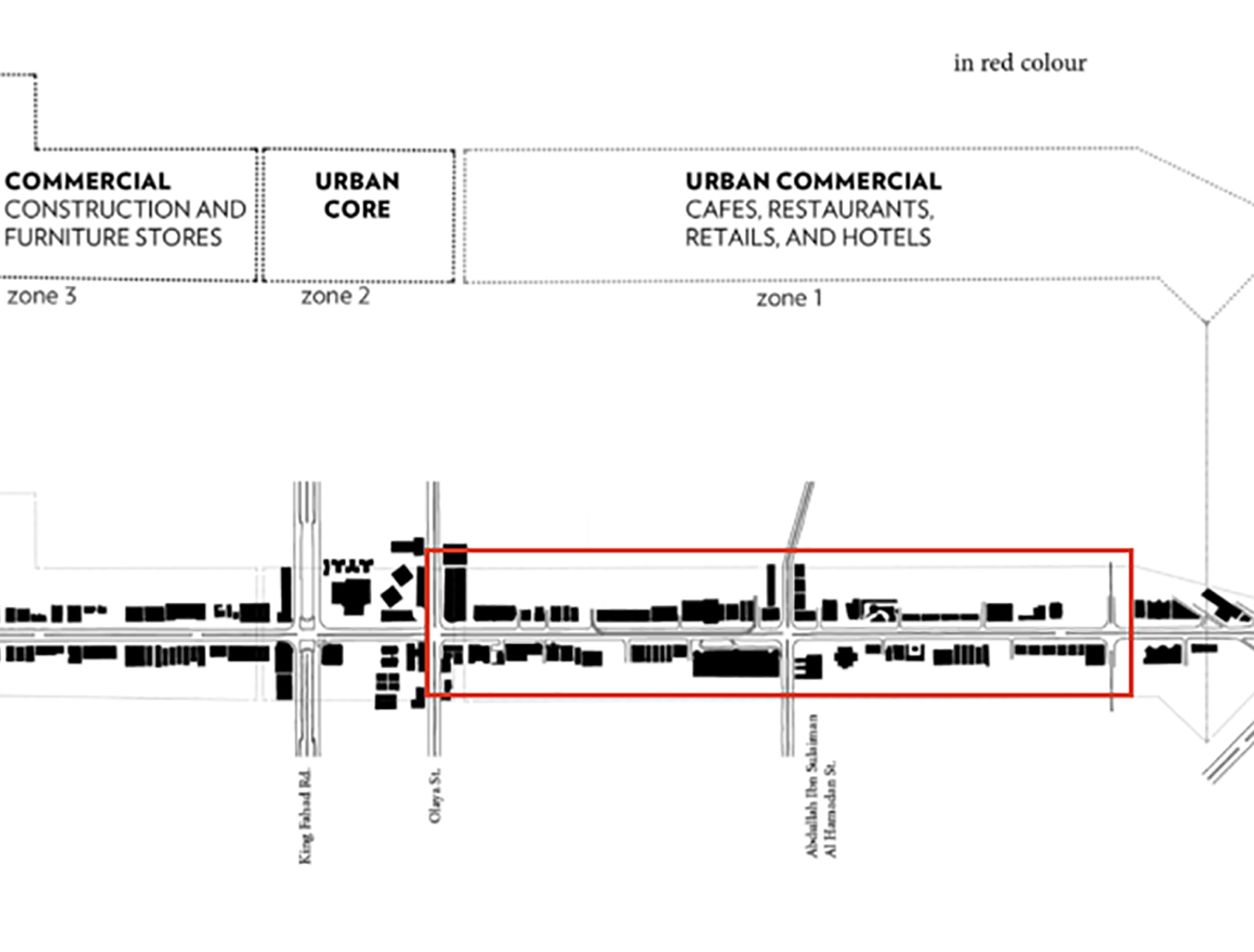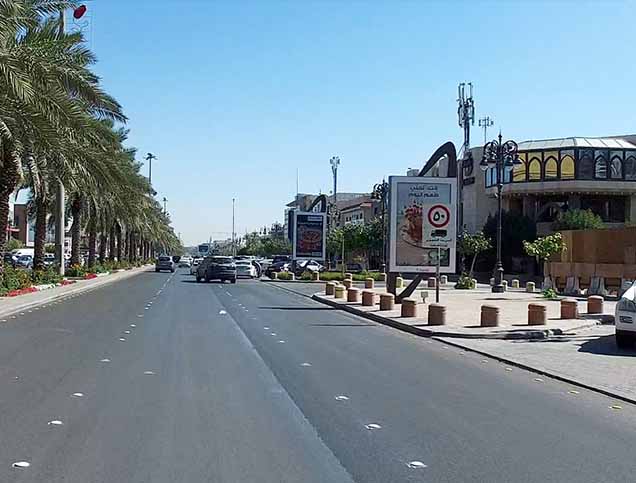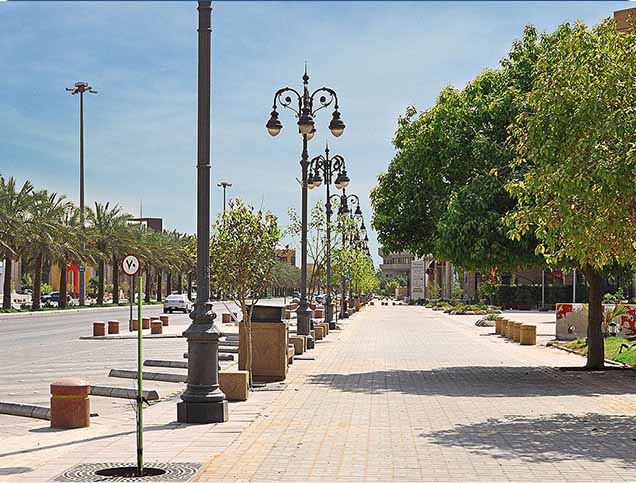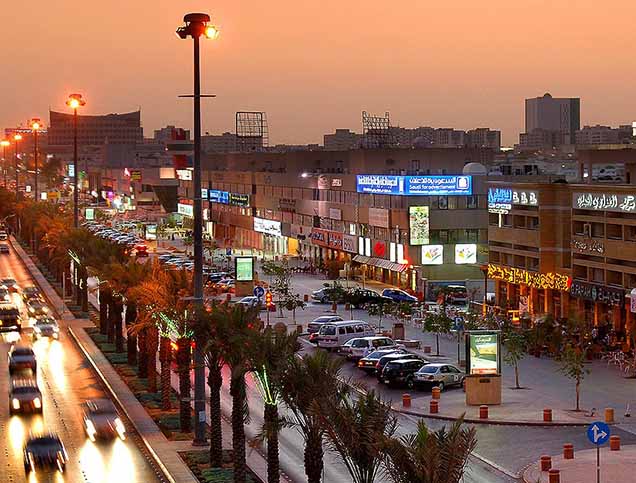
Close

Approach Words: Integrated City, Sustainability, Urban Livability
Public Policy Instruments: Physical Intervention, Planning, Regulatory
Tahlia Street (officially Prince Muhammad bin Abdulaziz Street) is a 5-kilometer-long commercial street located in the north of the city of Riyadh in Saudi Arabia1. Its original name, Tahlia, comes from the Water Distillation Authority, present on the same street2. It can be categorized into 4 distinct zones in accordance with its land-use; these consist of restaurants and cafes, offices, retail, and high end residential3. Prior to its renovation, Tahlia Street constituted a 3-lane road, a service road, parking and narrow sidewalks with limited benefit to pedestrians4. The street also experienced a large number of car accidents due to high-speed traffic5.
In the early 2000s, the Riyadh municipality introduced an initiative titled ‘Humanizing the City’, which aimed to foster a healthy lifestyle by focusing on the ‘human dimension’ of urban spaces6. This drove the transformation of 61 streets in the city of Riyadh, in an attempt to make it a pedestrian friendly city7.

Title: Tahlia street zones.
Source: Click Here

Title: Tahlia Street- car route and on street parking.
Source: Click Here

Title: Tahlia Street- pedestrian walks and greenery.
Source: Click Here

Title: Tahlia Street- bird eye shot at night.
Source: Click Here
In light of this, Tahlia Street was selected as the model for a commercial street in Riyadh, redesigned to encourage walking and social interaction. The sidewalks of the street were widened, with 40m out of the total 60m right of way allocated for pedestrian activity. This reduced the space allocated for car movement, making the street safer and more accessible to pedestrians8. Other interventions included the installation of green medians, the use of signal prioritization, speed tables, safe pedestrian crossings, and plantation of street trees9. Moreover, on-street parking was introduced to support and revitalize the retail storefronts. To enhance the visual quality of the space, the pavement was designed using colorful stripes and unique lighting fixtures10. The street is currently used by the general population and has been remarkably and actively used by many. It is often referred to as the Champs-Elysees of Riyadh, and the ‘Sharie al-Shabab’, meaning ‘street of youth’11.

Owner/Developer (Public)

Contractor/Implementer
With a total cost of SAR 44 million (USD 11.7 million), the street revitalization project was led and supervised by Arriyadh Development Authority (ADA)12. Omarania13 was engaged as the design consultant and Manwa Trading & Contracting Company as the contractors for this project14.
Project Link
https://omrania.com/project/prince-mohammed-bin-abdulaziz-street-tahlia/
Endnotes
N.A.
References